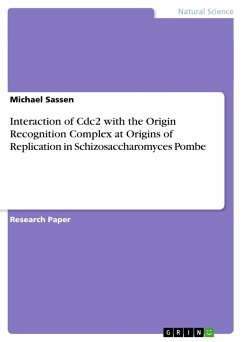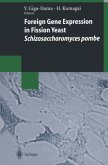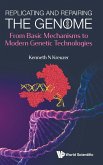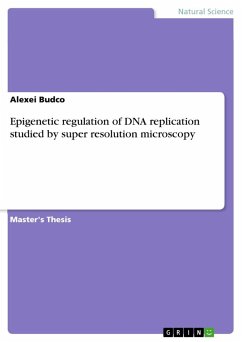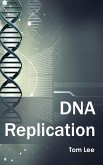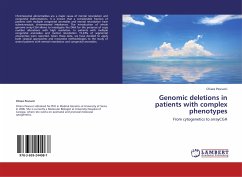Research Paper (postgraduate) from the year 2004 in the subject Biology - Genetics / Gene Technology, grade: 1,0, TU Bergakademie Freiberg, language: English, abstract: Eukaryotic DNA replication depends on the origin recognition complex (ORC) which is conserved from yeast to humans. Activity of replication factors including ORC is coordinated with the cell cycle progression to ensure that the entire genome is copied exactly once per cell cycle. This coordination depends on Cdc2 (cell division cycle 2), also highly conserved across all eukaryotes, which binds to the origin recognition complex. This book presents research results of the chromatin cross-linking immuno-precipitation (ChIP) procedure to determine (1) if Cdc2 kinase is localized at DNA replication origin as predicted by current models, (2) when this happens and (3) what the genetic requirements for that localization are. Furthermore the binding ability of different ORC and cdc2 mutants was tested, as well as the influence of Cdc18 on the ORC-Cdc2 interaction. This is particularly interesting, since those regulations ensure genome stability. Studying these pathways in yeast gives us insights into the mechanisms that are critical in mammalian cells to prevent cancer.

